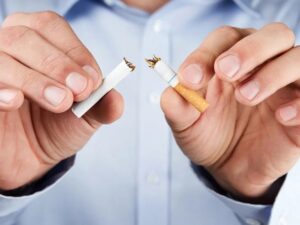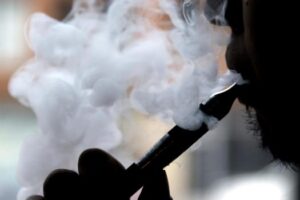In the world of cancer, as we know, smoking is possibly the biggest threat entire mankind can assume. Similarly, passive smoking, also known as second-hand smoke or environmental tobacco smoke, is when a person breathes in toxic fumes that have remained in the air or surrounding objects after a cigarette has been smoked. It also refers to exposure of unborn babies to their mother’s smoke.
How does passive smoke affect our lungs? Many of us are not aware of it yet. It’s just as harmful as smoking itself. Passive smoking is classed as cancer-causing by the World Health Organization and there are no safe levels of exposure. Passive smoking can cause premature death, disease and disability in adults and children.

In adults: passive smoking is known to cause lung cancer, coughing, wheezing and other illnesses such as coronary heart disease.
In children: passive smoking can increase the severity of asthma symptoms and lead to new asthma cases. It can also cause coughing and wheezing and other illnesses such as middle-ear problems.

There are over 4,000 chemicals generated during the burning and smoking of tobacco products. Of these, over 250 chemicals are known to be toxic or cancer-causing. Second hand Smokes are also as Dangerous as Smoking a Cigarette. Firsthand smoking and secondhand smoke both cause serious health effects. While direct smoking is worse, the two have similar adverse health effects.
Secondhand smoke is also called as:
side-stream smoke
environmental smoke
passive smoke
involuntary smoke
Studies say that nonsmokers who inhale secondhand smoke are affected by chemicals contained in the smoke. According to the World Health Organization(WHO) Trusted Source, there are over 7,000 chemicals found in tobacco smoke. In all, at least 69 are cancerous. Over 250 are harmful in other ways.

Fluids such as blood and urine in nonsmokers might test positive for nicotine, carbon monoxide, and formaldehyde. The longer you’re exposed to secondhand smoke, the greater the risk you are of inhaling these toxic chemicals. As much as it is required to quit smoking, simultaneously we need to maintain a certain distance when someone is inhaling nicotine. So, in this process if you are someone who is suffering from cancer, or have any doubt or queries regarding this, our Care specialists are here at V Care Cancer Centre to help you out in assistance of senior Onco Surgeon Dr Vikash Kumar Agrawal. Here you can have treatment for all cancer types under the same roof.


